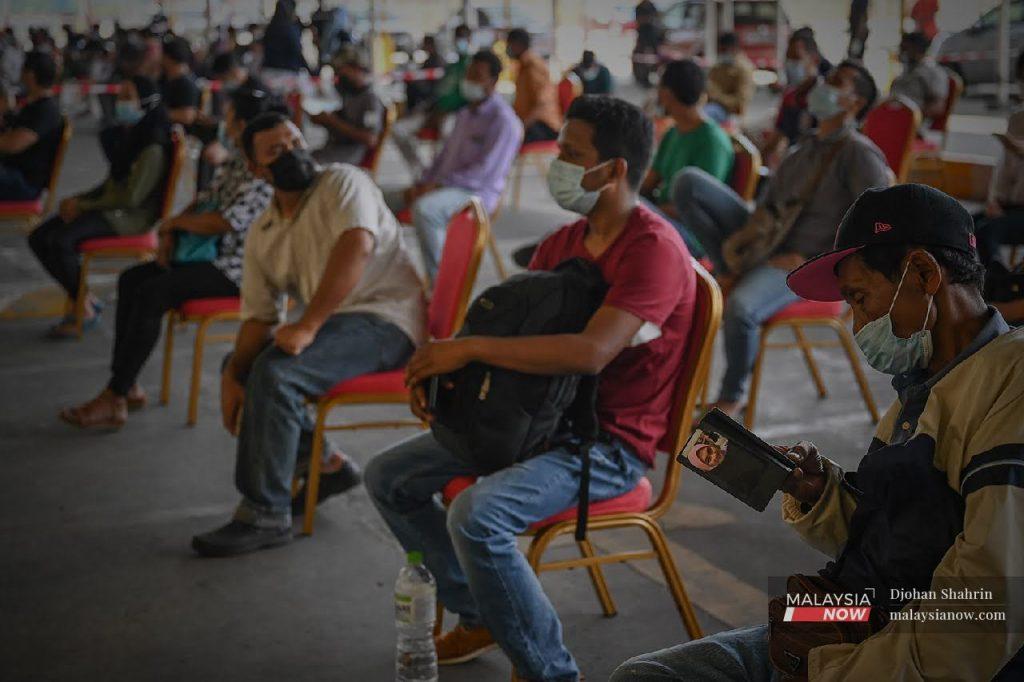Public health group blasts immigration boss, home ministry on planned anti-migrant raids
The Galen Centre for Health and Public Policy says it would be self-defeating to conduct such operations during a pandemic.
The Galen Centre for Health and Public Policy today reminded authorities of the repercussions of last year’s crackdown on undocumented migrants at the height of the first movement control order, in the wake of a recent announcement by Home Minister Hamzah Zainudin of more immigration enforcement operations to be conducted during the upcoming lockdown period.
“Last year’s enforcement activities which resulted in thousands of people from the migrant communities being vulnerable, at risk of infection and becoming infected in detention due to those operations, should have guided the government’s decision on this issue,” Galen chief executive Azrul Mohd Khalib said in a statement.
He also cited a Twitter post by immigration director-general Khairul Dzaimee Daud, who had vowed to go after “illegal immigrants who live and work in this beloved country without any documents, not paying tax and levy but reap all the benefits”.
“We are protecting the rights of local people,” Khairul had said.
But Azrul warned that this would be a “major mistake”.
“Just as it was done before in 2020, this would be a major mistake. You do not conduct such operations during a public health emergency, especially a pandemic. It is self-defeating.”
Last year’s raids came despite Putrajaya’s assurances that refugees and migrants need not worry about their status in coming forward to be tested for Covid-19.
Reports of one raid on the Selayang wholesale market in May 2020 said 1,368 migrants were detained including 98 children.
Azrul said these acts had contributed to a trust deficit that discouraged those from such communities from coming forward to be screened, diagnosed and treated for Covid-19.
“It will now threaten the government’s hard work to urgently vaccinate the population and achieve herd immunity,” he added.
“Such actions are contrary to public health objectives.”
Khairy Jamaluddin, the minister in charge of the National Covid-19 Immunisation Programme, has repeatedly assured that migrants who come forward to be vaccinated will not be arrested.
“The position of the government is we will be providing vaccination free for all in Malaysia, including undocumented migrants and asylum seekers with the assurance that they will not be detained or reported.
“We will likely be working with NGOs in order to facilitate vaccinations,” he said at a press conference in March.
Azrul said it was “baffling” that the immigration department would decide to undertake such an exercise during a public health emergency which has seen thousands of new Covid-19 cases reported each day.
“The Covid-19 epidemic in Malaysia today is not where it was in 2020. We are in the fourth wave where the situation is more grim, tenuous and teetering on the brink.
“If permitted to proceed, immigration enforcement operations could result in multiple spreader events and massive spikes of infection among migrants, before and during detention, adding new cases where there were few or none,” he said.
“It has happened before. Why should we allow history to repeat itself, and cause harm to our Covid-19 response?”
Subscribe to our newsletter
To be updated with all the latest news and analyses daily.
